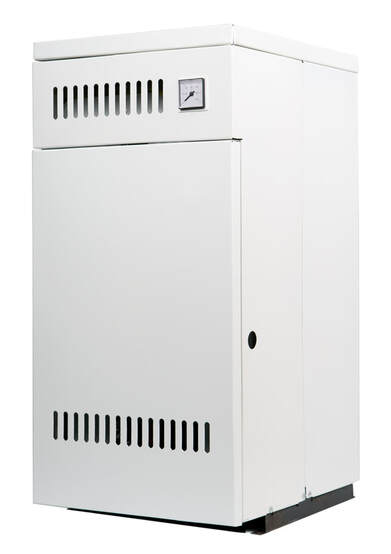“I’m buying a new furnace for the first time. What questions Should I ask when buying a new furnace?”KEY TAKEAWAYS:
1). What size should I buy?
I care about furnace size. What questions should I ask when buying a new furnace for my unique space? Is there such a thing as buying a heater that is “too big” or “too small” for a space?
The size of a furnace can have a serious impact on its ability to heat a space. A furnace that is too small for the area will struggle to heat the space, while a furnace that is too large will waste energy and money. To find the best heater for your home or commercial building, you’ll need to find a unit that fits your space just right. If your furnace is too small for your space, it will have to work harder to heat your home or commercial building, which can lead to more damages. If your furnace is constantly struggling to heat your space, it will eventually wear itself out. This can lead to more frequent repairs and a significantly shorter lifespan. Additionally, a small furnace may not be able to keep up with the heating demands of a larger space, resulting in uneven heat and cold spots. On the other hand, a furnace that is too large for the space will produce too much heat while using too much energy. This can lead to higher energy bills and a greater carbon footprint. Additionally, a furnace that is too large may not be able to control the temperature accurately, resulting in rooms that are either too hot or too cold. If you want to make sure that the furnace you are considering is the right size for your space, you’ll need to talk to an HVAC professional. A certified HVAC professional can conduct a “load calculation” of your space. A professional load calculation takes into account factors such as the square footage of the space, the number of windows, the insulation levels, and the local climate. Based on this calculation, a professional will determine exactly what furnace size you’ll need. It's also important to note that a furnace's size can also affect its efficiency. A larger furnace may have a higher AFUE (Annual Fuel Utilization Efficiency) rating than a smaller one, but it also consumes more fuel to heat the space. A small furnace, on the other hand, may have a lower AFUE rating but consumes less fuel to heat the space. 2). How efficient is the new unit?
What about efficiency? What questions should I ask when buying a new furnace if I’m looking for the most efficient unit possible?
By choosing the most efficient furnace for your home or commercial building, you’ll save hundreds (or maybe even thousands) on energy bills. There are several factors to consider when making this decision. The first thing to consider is the furnace's Annual Fuel Utilization Efficiency (AFUE) rating. This rating measures the amount of fuel a furnace converts into heat, with higher ratings indicating more efficient units. The minimum AFUE rating for new gas-fired furnaces is currently 78%, and for oil-fired furnace is currently 82%. A furnace with a 90% AFUE rating, for example, will convert 90% of the fuel it uses into heat, while the remaining 10% is lost through combustion. Another important factor to consider is the type of furnace. There are several types of furnaces available, including traditional furnaces, heat pumps, and boilers. Each type has its own set of benefits and drawbacks, so it's important to weight each option carefully. When choosing a furnace, it’s also important to consider the brand and model of the furnace you choose. Look for a furnace from a reputable brand that has a good track record of reliability and customer satisfaction. It’s also a great idea to check the warranty and maintenance requirements for the furnace you choose. 3). Should I purchase any HVAC accessories?
What questions should I ask when buying a new furnace if I’m planning on purchasing a few HVAC accessories?
There are several HVAC accessories available for furnaces that can improve their performance, efficiency, and overall functionality. Some of the most common accessories include:
4). What are the different types of furnaces, and which one should I get?5). How much will installation cost?
I’m worried about the price. What questions should I ask when buying a new furnace if I’m working with a tight budget?
The cost of a furnace installation can vary widely depending on a number of factors, including the type of furnace, the size of the unit, and the complexity of the installation. To save you some time, here are some estimates of how much you might pay for a furnace installation: · Natural gas furnace: Between $2,500 and $5,000. · Propane gas furnace: Between $3,000 and $6,000. · Electric furnace: Between $2,000 and $4,000. · Hybrid furnace: Between $5,000 and $8,000. · Ductless Mini-split systems: Between $3,000 and $7,000. 6). How often should I schedule tune-ups?
What about maintenance? What questions should I ask when buying a new furnace if I know nothing about regular furnace maintenance?
Scheduling regular maintenance services for your furnace is an important part of ensuring that it runs efficiently and safely. Here’s a quick run-down on suggest furnace maintenance:
Still wondering, "what questions should I ask when buying a new furnace?" Let us answer your questions for free!
Time to schedule a tune-up? Or maybe you just have more questions about heaters? Either way, we’re here to help with all of your heating needs. If you’ve been asking yourself, what questions should I ask when buying a new furnace, then chances are, this is the first time you’ve ever purchased a new furnace. Our HVAC professionals are here to answer all of your questions and help you with all of your heating needs!
Request a free consultation with an HVAC professional today!
0 Comments
Leave a Reply. |
|
HVAC Solutions
655 Elkton Drive Ste 200 Colorado Springs, CO 80907 Phone: 719-548-8880 Fax: 719-548-1853 A Full Service Residential and Commercial Furnace, Heating and Air Conditioning Company |
Privacy Policy | Terms and Conditions | Sitemap
©
HVAC Solutions, Inc.
|

